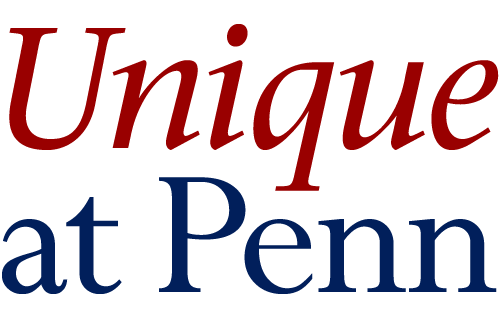STORIES FROM THE PHILADELPHIA ORCHESTRA ASSOCIATION RECORDS
On a presumably chilly winter’s day 115 years ago, someone faithfully recorded the meeting minutes of the very early leadership of the Philadelphia Orchestra Association:
December 8, 1908
Mr. Van Rensselaer took the chair.
Mr. Van Rensselaer said that, to avoid further unnecessary discussion, he wished to remark that he had settled the question as to the inadvisability of giving Sunday concerts.
Notwithstanding this decree, Mr. Kuhn challenged him to combat on the issue and called the public to witness that he was their champion and would fight for their rights against all the clergy in Christendom.
Mr. Wheeler joined Mr. Kuhn and asserted that the blue law would be black and blue before they were done with it.
Mr. Ingham said that, as the makers of the blue law never considered concerts either a “necessity” or a “charity,” they came therefore within the exception of “works of necessity and charity.”
Mr. Burnham declared that he was greatly in favor of Sunday concerts and therefore moved that it was most inexpedient to have them.
Mr. Cook said that, as two of the 270 guarantors declared that they were opposed and would withdraw their guarantees, if the concerts were given, he was afraid that the other 268 who were not opposed would do the same thing and the guarantee fund would thus entirely vanish. As Trustee, he would therefore oppose the scheme. He also said that by careful calculation he had discovered that, if all the seats in Hammerstein’s were sold for five cents apiece, the proceeds would not be sufficient to make a large surplus.
Mrs. Rosengarten said that those who got into the habit of buying things on Sunday would surely want to buy other things, which would lead to the opening of the shops on that day, — a deplorable, but inevitable, result.
Mr. Giscom objected, that a matter of such importance should not be decided by as few members of the Association as were then present, but should be brought before a meeting of the Board of Directors. Mr. Griscom was informed that this was a meeting of the Board of Directors, whereupon he withdrew his objection.
All the members present – except Mrs. Rosengarten, who was opposed to an “opening wedge” – declared emphatically that they were in favor of giving Sunday concerts. It was, therefore, resolved that such concerts should not be given.
The meeting then adjourned for luncheon and the opera.


This document, which reads like a comical one-act play, was kept by the Orchestra’s administrators in a folder dedicated to documenting its decades-long fight to perform on Sundays in Philadelphia. If we are to trust this is a faithful transcription, it certainly gives us a little insight as to the personalities of the Orchestra’s first Board members. It also reveals that decisions had to be supported unanimously – hence the Board’s resolution to abstain from giving Sunday concerts due to one veto.
The Orchestra and Pennsylvania’s “blue laws”
The matter at hand was Pennsylvania’s “blue laws,” legislation prohibiting most forms of commerce on Sundays, whose origins date back to the 17th century, just after Pennsylvania became a colony.
Despite Mrs. Rosengarten’s concern that opening commerce on Sundays was both inevitable and deplorable, the battle persisted until 1957, when Mayor Richardson Dilworth ruled that despite the continued presence of Pennsylvania’s blue laws, concerts and shows were to be permitted on Sundays, after 1pm. (Around the same time it was also decided that professional basketball and hockey were also permitted during certain hours on Sunday; baseball and football had already been approved in the 1930s).

In 1978 Pennsylvania’s Supreme Court ruled that most of the Sunday “blue laws” were unconstitutional because they were unenforceable, but the actual law remained on the books until the spring of 2019, when a bill was passed that officially repealed the legislation.

Better late than never!
The Philadelphia Orchestra Association records, which represent the Orchestra’s institutional history from 1900-2023, are partially available for research. The remainder of the collection is still in process. If you wish to consult material from the published portioned of the finding aid, please request material via the finding aid site. If you have questions, please reach out to kislak@upenn.
Sources consulted:
“Blue Laws Less Blue. Philadelphia to Permit Sunday Exhibits and Concerts.” New York Times. 24 February 1957. https://www.nytimes.com/1957/02/24/archives/blue-laws-less-blue-philadelphia-to-permit-sunday-exhibits-and.html
Meyer, Kate. “Pa. lawmakers cleaning up old laws on Sunday baseball, public music.” Meyer, Kate. WHYY. 17 April 2019. https://whyy.org/articles/pa-lawmakers-cleaning-up-old-laws-on-sunday-baseball-public-music/

